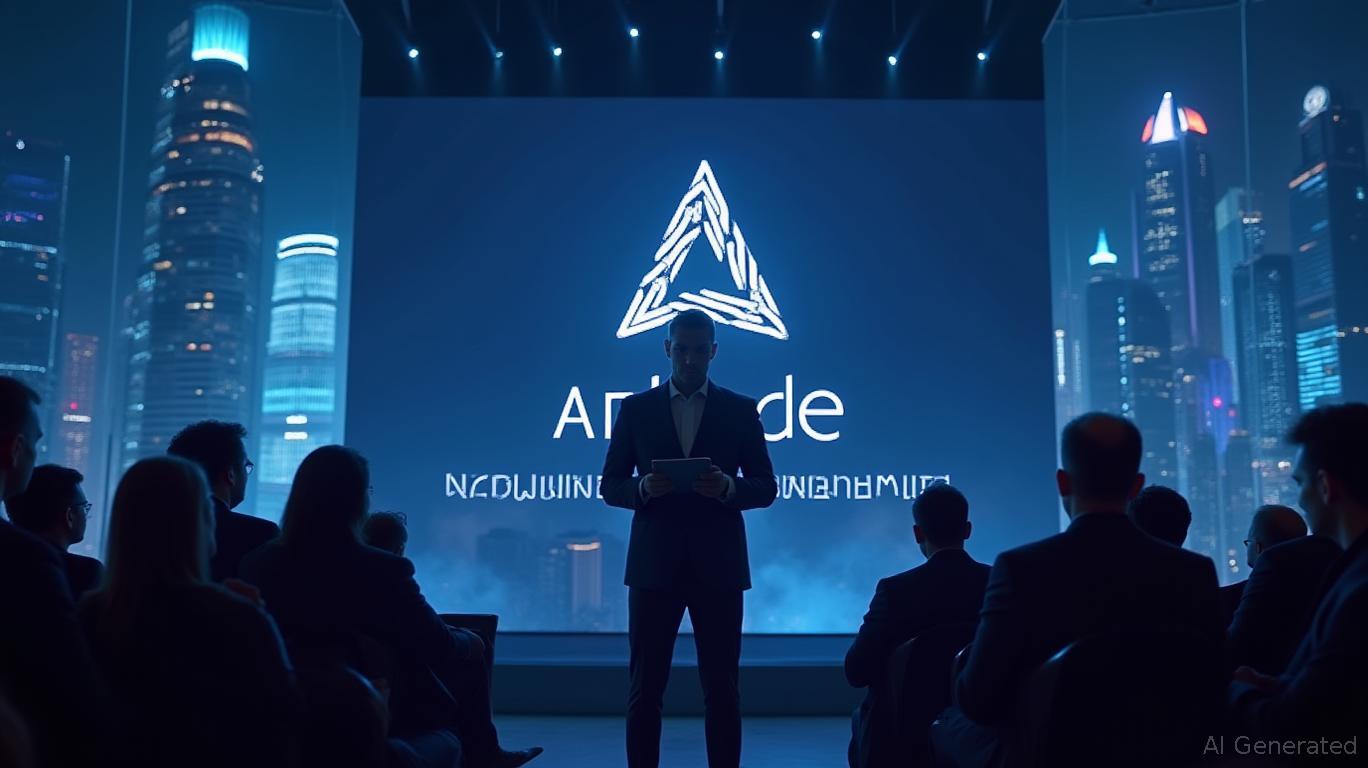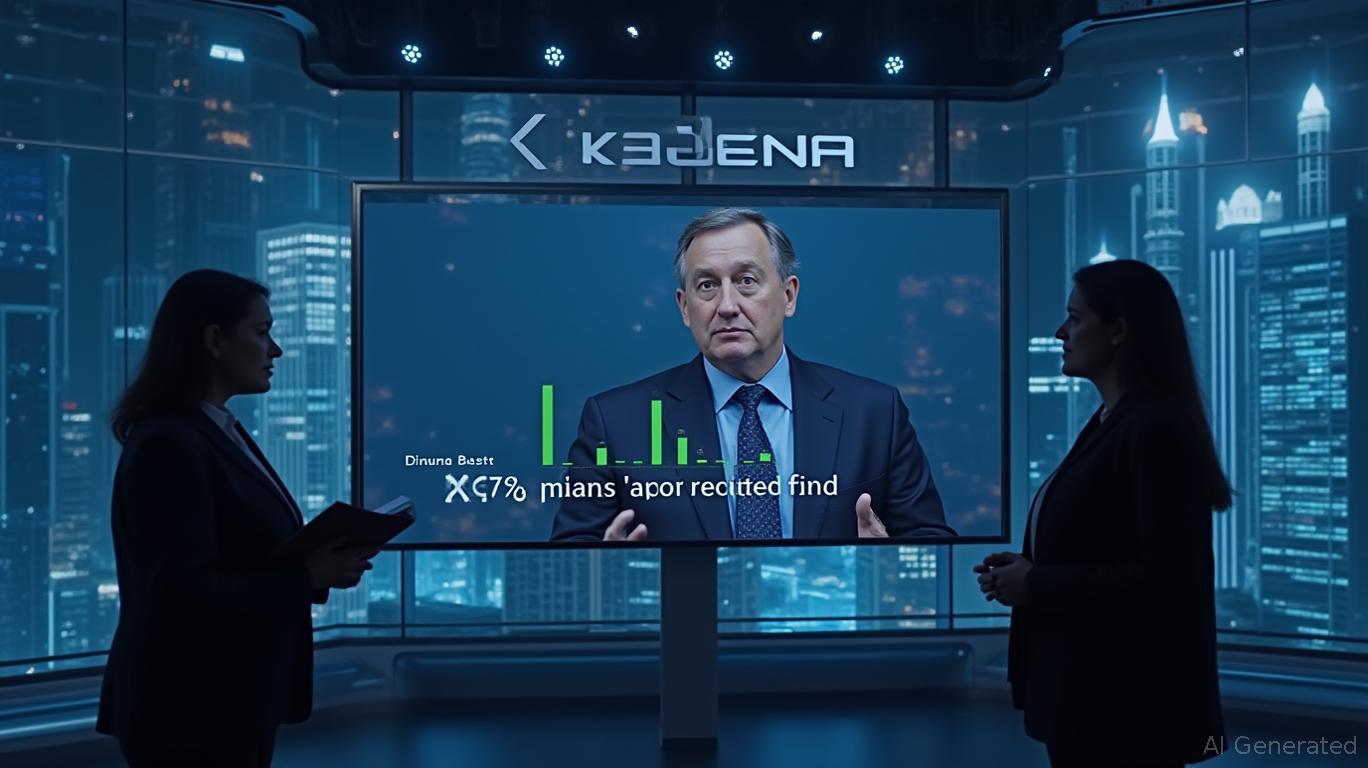Bitcoin Updates Today: Arkade Paves the Way for Programmable Currency in Bitcoin’s Next Phase
- Ark Labs launches Arkade, a Bitcoin-native Layer 2 protocol enabling instant transactions and financial tools without altering Bitcoin's consensus rules. - The protocol uses VTXOs to preserve Bitcoin's security while supporting stablecoin issuance and trading, addressing limitations in the base layer's programmability. - With $200B+ stablecoin circulation, Arkade aims to retain Bitcoin's "digital gold" status while unlocking financial innovation through virtual transaction layer virtualization. - Unlike
Written by [Author Name]

October 21, 2025 -
Arkade utilizes
"This marks the start of Bitcoin’s journey as programmable money," stated Marco Argentieri, CEO of Ark Labs. The company highlighted that Arkade’s design eliminates custodial risks and avoids bridge mechanisms, which are often criticized in other Layer 2 solutions that depend on wrapped assets or sidechains.
One of the main breakthroughs is , a framework that broadens the protocol’s capabilities to include stablecoins and other digital tokens. With stablecoins circulating over $200 billion, Bitcoin’s limited programmability has traditionally driven this activity to other networks. Arkade seeks to change this by allowing stablecoin creation and trading directly on Bitcoin.
This launch comes after two years of development and $2.5 million in pre-seed investment led by Tim Draper’s firm. Early collaborators include Breez, BTCPayServer, and BullBitcoin, with Lightning Network compatibility through Boltz enabling smooth liquidity exchanges. Argentieri pointed out that Bitcoin’s $2 trillion market value demonstrates its status as "digital gold," but the base layer has limited financial innovation. "Arkade unlocks all of Bitcoin’s capabilities without sacrificing its foundational values," he said.
Although other Bitcoin Layer 2 projects exist—such as Rootstock’s BitVMX—the Arkade team emphasizes that theirs is the first to deliver a functioning mainnet solution. Unlike many rivals, Arkade does not establish separate blockchains or alter Bitcoin’s consensus, instead focusing on virtualizing the transaction layer.
The protocol’s future plans include more advanced scripting, new financial tools, and improved security. Developers can access Arkade’s SDKs in TypeScript, Golang, and Rust, with documentation available.
Disclaimer: The content of this article solely reflects the author's opinion and does not represent the platform in any capacity. This article is not intended to serve as a reference for making investment decisions.
You may also like
Ethereum Updates Today: Ethereum Transfers $654M—Developer Compensation or Market Volatility?
- Ethereum Foundation transfers $654M ETH to a wallet historically linked to sales, sparking speculation about developer compensation or treasury strategy. - The single-transaction transfer exceeds prior sales by 16x and bypasses decentralized exchanges, drawing criticism for transparency concerns. - Critics highlight underpayment of core developers like Péter Szilágyi, while the Foundation denies confirming the funds' purpose despite ongoing ecosystem tensions. - Market reactions remain muted (ETH at $4,3

21Shares files for Injective ETF amid growing institutional interest

Kadena shuts down operations as token plunges 50%

Centralized control spells disaster for Kadena, highlighting the contradiction within crypto's decentralization ideals
- Kadena blockchain abruptly ceased operations, causing its token KDA to plummet 47% to $0.121. - The shutdown ended a four-year journey led by ex-JP Morgan executives, halting 2025 roadmap plans for Chainweb EVM and fintech integrations. - Analysts warn centralized governance models risk token viability, as Kadena's collapse highlights crypto projects' fragility amid regulatory and funding challenges. - Despite decentralized network persistence, lack of active development underscores risks of overreliance
